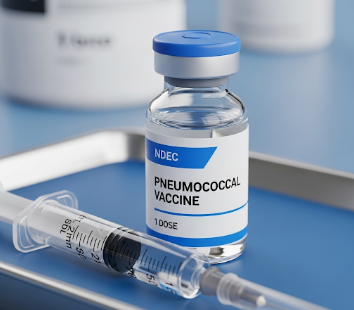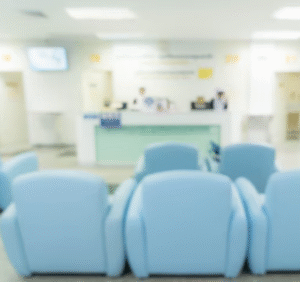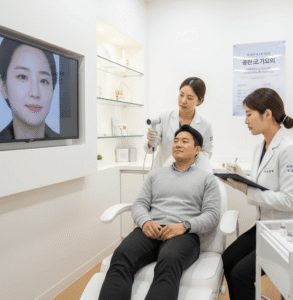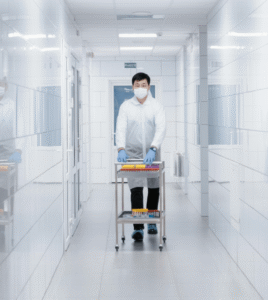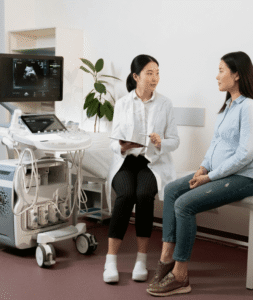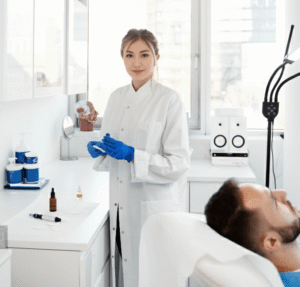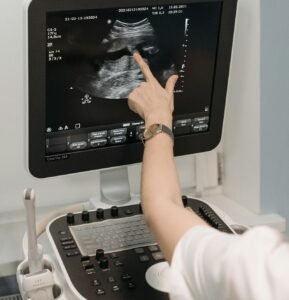What it is
The pneumococcal vaccine is a preventive immunization designed to protect against infections caused by Streptococcus pneumoniae bacteria. These bacteria can lead to serious illnesses such as:
➡ Common infections prevented by the vaccine:
- Pneumonia → Infection of the lungs
- Meningitis → Infection of the membranes surrounding the brain and spinal cord
- Bacteremia/septicemia → Bloodstream infection
- Otitis media → Middle ear infection, particularly in children
💡 Key points:
- The vaccine is available in two main types:
- PCV (Pneumococcal Conjugate Vaccine) → Protects against multiple strains, used primarily in children and high-risk adults
- PPSV (Pneumococcal Polysaccharide Vaccine) → Protects against more strains, commonly used in adults over 65 and those with chronic conditions
- In Korea, the pneumococcal vaccine is part of national immunization programs for infants, children, and high-risk populations
Why it’s done
Pneumococcal vaccination is critical to prevent severe bacterial infections, especially in vulnerable groups.
➤ Medical indications include:
- Infants and young children → Reduce risk of pneumonia, meningitis, and ear infections
- Adults over 65 → Protect against serious infections due to age-related immune decline
- Chronic conditions → Heart disease, lung disease, diabetes, liver disease, or immunocompromised states
- Post-splenectomy patients → Individuals without a spleen are at higher risk for invasive pneumococcal disease
- People with weakened immune systems → HIV, cancer, or long-term corticosteroid therapy
➤ Key benefits:
- Prevents life-threatening infections
- Reduces hospitalization and complications
- Boosts herd immunity when widely administered
- Decreases antibiotic use by reducing infection rates
- Provides long-term protection against multiple strains
Alternatives
While the pneumococcal vaccine is the most effective preventive measure, additional or complementary strategies include:
✔ Good hygiene practices → Regular handwashing and avoiding contact with sick individuals
✔ Influenza vaccination → Reduces risk of secondary pneumococcal infections
✔ Prompt medical care → Early diagnosis and treatment of respiratory infections
✔ Healthy lifestyle measures → Adequate nutrition, exercise, and avoiding smoking to strengthen immunity
Note: Vaccination remains the primary and most effective preventive method against invasive pneumococcal disease.
Preparation
Proper preparation ensures safe and effective vaccination:
🔹 Medical evaluation
- Review patient’s age, medical history, and prior vaccinations
- Identify any allergies to vaccine components
🔹 Precautions before vaccination
- Patients with moderate or severe acute illness may need to postpone vaccination
- Inform healthcare provider about current medications or immune conditions
🔹 Patient education
- Understand vaccine type (PCV or PPSV), dosing schedule, and potential side effects
- Know the importance of follow-up doses or booster shots
How it’s done
The pneumococcal vaccine is administered as an injection, either into the muscle (IM) or under the skin (subcutaneous) depending on the protocol.
➡ Step-by-step procedure:
- Vaccine administration
- Single or multiple doses depending on age and health status
- For infants, PCV is usually given in 3–4 doses over several months
- Adults may receive one or two doses depending on prior vaccination history
- Observation period
- Patient remains under observation for 15–30 minutes to monitor for immediate allergic reactions
- Documentation and follow-up
- Record vaccination in the national immunization registry
- Schedule booster or follow-up doses if needed
💡 Tips for effectiveness:
- Follow the recommended dosing schedule for age and health condition
- Keep a vaccination record for future reference
- Ensure timely booster shots for long-term protection
Recovery / Expected Outcomes
The pneumococcal vaccine is well-tolerated, and no significant recovery period is required.
🔹 Common post-vaccination effects:
- Mild pain or redness at injection site
- Low-grade fever or fatigue for 1–2 days
- Rare mild allergic reactions
🔹 Clinical outcomes:
- Significant reduction in invasive pneumococcal disease
- Lower risk of hospitalization and severe complications in children and adults
- Provides long-lasting immunity, particularly when full schedule is completed
💡 Patient benefits:
- Protection against multiple serotypes of Streptococcus pneumoniae
- Reduced risk of secondary infections and antibiotic use
- Contributes to community health through herd immunity
Complications / Considerations
The pneumococcal vaccine is generally safe, but some considerations include:
⚠ Local reactions → Pain, swelling, or redness at injection site
⚠ Systemic reactions → Mild fever, fatigue, or muscle aches
⚠ Severe allergic reaction → Extremely rare, requires immediate medical attention
⚠ Underlying immune compromise → May require additional doses or alternative schedules
Mitigation:
- Administer vaccine in licensed medical facilities
- Follow guidelines for high-risk patients
- Monitor for any adverse effects and seek care if symptoms persist
Treatment Options in Korea
The pneumococcal vaccine is widely accessible in hospitals, clinics, and public health centers across Korea:
🏥 Vaccination centers and hospitals:
- Seoul National University Hospital (SNUH) → Pediatric and adult vaccination services
- Asan Medical Center → Comprehensive immunization programs for all ages
- Samsung Medical Center → Vaccination services with follow-up and booster scheduling
- Local public health centers → Provide vaccines as part of national immunization program (NIP)
💰 Insurance and cost:
- National Health Insurance covers pneumococcal vaccination for:
- Children under 5
- Adults over 65
- High-risk adults with chronic conditions
- Private payment may be required for non-covered adults or cosmetic use
🔹 Additional support:
- Patient counseling on dosing schedules, booster shots, and side effect management
- Integration with other vaccinations such as influenza and COVID-19
- Educational programs to promote vaccine awareness and adherence
Conclusion
The pneumococcal vaccine in Korea is a safe, effective, and essential preventive measure against serious bacterial infections.
By vaccinating children, adults, and high-risk populations, it:
- Prevents life-threatening diseases such as pneumonia, meningitis, and bloodstream infections
- Reduces hospitalizations and complications from invasive infections
- Supports herd immunity and public health initiatives
- Provides long-term protection when administered according to recommended schedules

